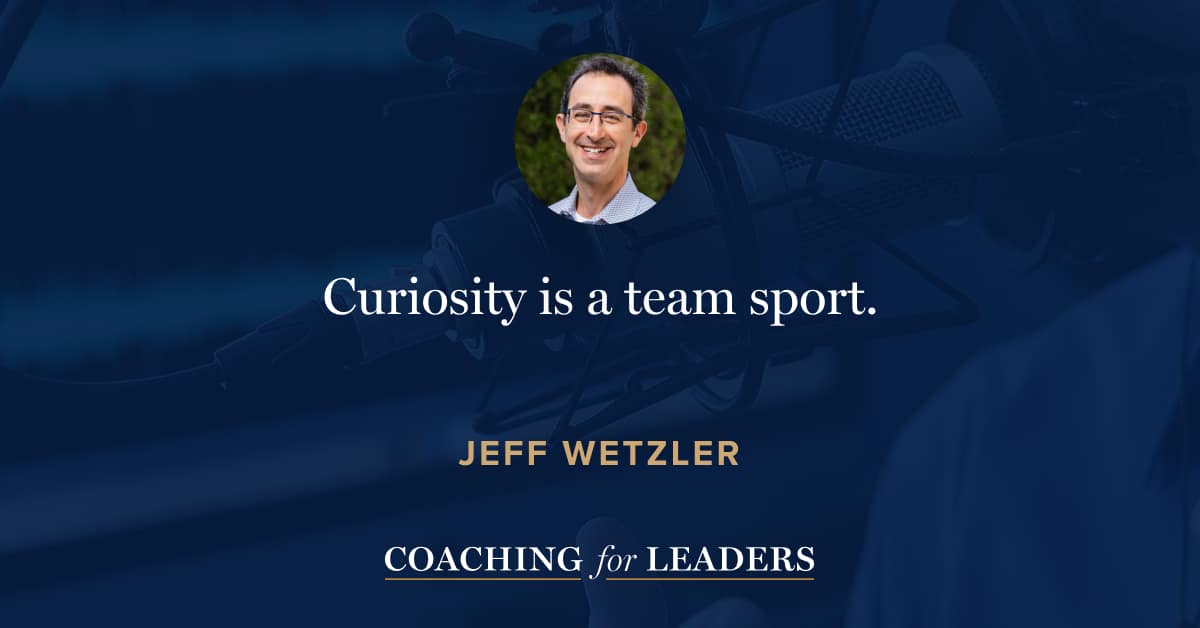Jeff Wetzler: Ask
Jeff Wetzler is co-Founder of Transcend, a nationally recognized innovation organization, and an expert in learning and human potential. His experience spans 25+ years in business and education, as a management consultant to top corporations, a learning facilitator for leaders, and as Chief Learning Officer at Teach For America. He's the author of Ask: Tap Into the Hidden Wisdom of People Around You for Unexpected Breakthroughs in Leadership and Life*.
We place our organizations at risk when we miss stuff. Often, the things we miss aren’t what we don’t know. Instead, they are the assumptions we don’t even question. In this conversation, Jeff and I explore the practices that work to find what’s missing.
Key Points
Hidden feedback cues:
- Repeated questions or suggestions about seemingly small details.
- Increased involvement in tactical decisions.
- Unexpected decreases in engagement.
Benefits of curiosity:
- When We’re Curious About People, They Like Us More
- Curiosity begets curiosity.
- Curiosity creates empathy.
- Curiosity makes us more resilient.
Curiosity sparks:
- What might I be missing?
- How else might someone interpret the situation?
- How might I be impacting them?
- What can I learn from this person?
Resources Mentioned
- Ask: Tap Into the Hidden Wisdom of People Around You for Unexpected Breakthroughs in Leadership and Life* by Jeff Wetzler
- Ask Approach
- How to Recognize “Hidden Feedback” (Harvard Business Review) by Jeff Wetzler
- The Curiosity Coach In Your Pocket (Psychology Today) by Jeff Wetzler
Related Episodes
- How to Inspire More Curiosity, with Shannon Minifie (episode 520)
- How to Help Others Be Seen and Heard, with Scott Shigeoka (episode 654)
- Make it Easier to Discuss Hard Things, with Jeff Wetzler (episode 679)
Discover More
Activate your free membership for full access to the entire library of interviews since 2011, searchable by topic. To accelerate your learning, uncover more inside Coaching for Leaders Plus.





